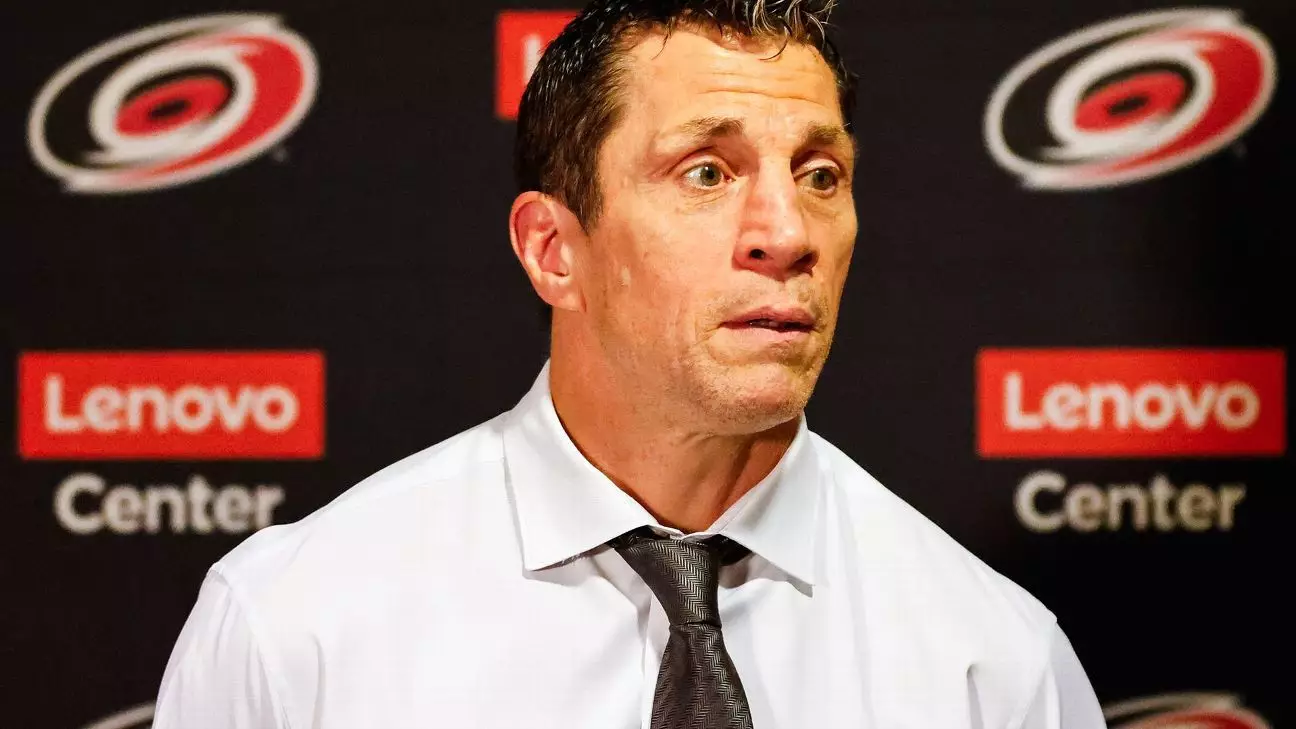In recent events within the National Hockey League (NHL), a debate has emerged surrounding a cherished custom: the handshake line that marks the end of playoff series. Carolina Hurricanes coach Rod Brind’Amour expressed his surprise when Florida Panthers coach Paul Maurice proposed that coaches and staff abstain from this time-honored gesture of sportsmanship. Maurice’s vision of revamping the handshake line is indicative of a shift toward centering the spotlight solely on players and their on-ice contributions. However, this push raises critical questions about the essence of competition, camaraderie, and the respect inherent in the game.
The Rationale Behind the New Tradition
Maurice’s rationale stems from an increasingly crowded scene at center ice—a mixture of players, coaches, and support staff congregating for a moment that should signify the ultimate respect between adversaries. “There’s this long list of people in suits and track suits,” he pointed out, suggesting that the sheer number of participants dilutes the poignancy of the handshake. Instead, Maurice envisions a scene where only the warriors—the players who battled for every inch of the ice—are showcased. While the intent is commendable, it invites scrutiny over who defines the parameters of respect and acknowledgment in competitive sports.
Critically, one must consider whether it is indeed wise to detach coaches from this deeply ingrained ritual. After all, coaches are crucial figures in the athletic journey, shaping strategies and cultivating teamwork. Their exclusion risks reducing the handshake line to a superficial event that may neglect the guiding influences of mentors and coaches who have contributed to the players’ growth.
The Value of Gracious Losing
Brind’Amour’s emphasis on “gracious losing” is noteworthy, as he delineates the handshake line as an essential moment of respect and reflection. His personal experiences through the line, where he has had meaningful exchanges with former players, highlight the humanity behind this ritual. In a sport that often teeters on raw aggression and fierce rivalry, the handshake remains a poignant practice of sportsmanship that transcends the final score.
The notion of acknowledging defeat with grace adds an enriching layer to the competitive experience. Brind’Amour poignantly mentioned how these moments allow coaches to reconnect with athletes they once guided. This exemplifies how sports can foster lasting bonds, where the end of a championship run does not merely signify loss but provides a space for mutual respect and shared memories that span beyond any single game or series.
Tradition vs. Innovation
The dichotomy of tradition and innovation in sports captures a broader conversation about how we envision the evolution of competitive rituals. As shown with Maurice’s proposed changes, there is always a temptation to modernize or streamline established customs. While transformation can breathe new life into a culture, it often comes at the risk of severing ties to the history that has shaped the sport.
Tradition, in this case, acts as a vessel for the values we cherish as sports fans: respect, resilience, and the struggle to triumph, whether that is through winning or losing. Following the mantra that sports serves as a microcosm of life, Brind’Amour’s stance calls for embracing the tradition of the handshake as a testament to integrity and humility in the face of competition.
Reflections Beyond the Ice
Ultimately, the discussion surrounding the handshake line sheds light on the broader culture of respect and recognition within professional sports. In a time when technology often prioritizes the ‘show’ over the substance, returning to the fundamentals of honor, player connection, and mentorship becomes imperative. The dialogue initiated by these coaches reflects not only their differing philosophies but more importantly, it encapsulates the larger conversation on how we honor athletes—not just as competitors but as people who pour their hearts into the game.
As the NHL playoffs continue, we are reminded that sportsmanship is not merely an act; it is a reflection of character. While Maurice’s ideals may ignite progress, Brind’Amour’s commitment to maintaining the handshake tradition signifies a dedication to the roots of the sport, underlining that respect among competitors is as critical as the competition itself.

